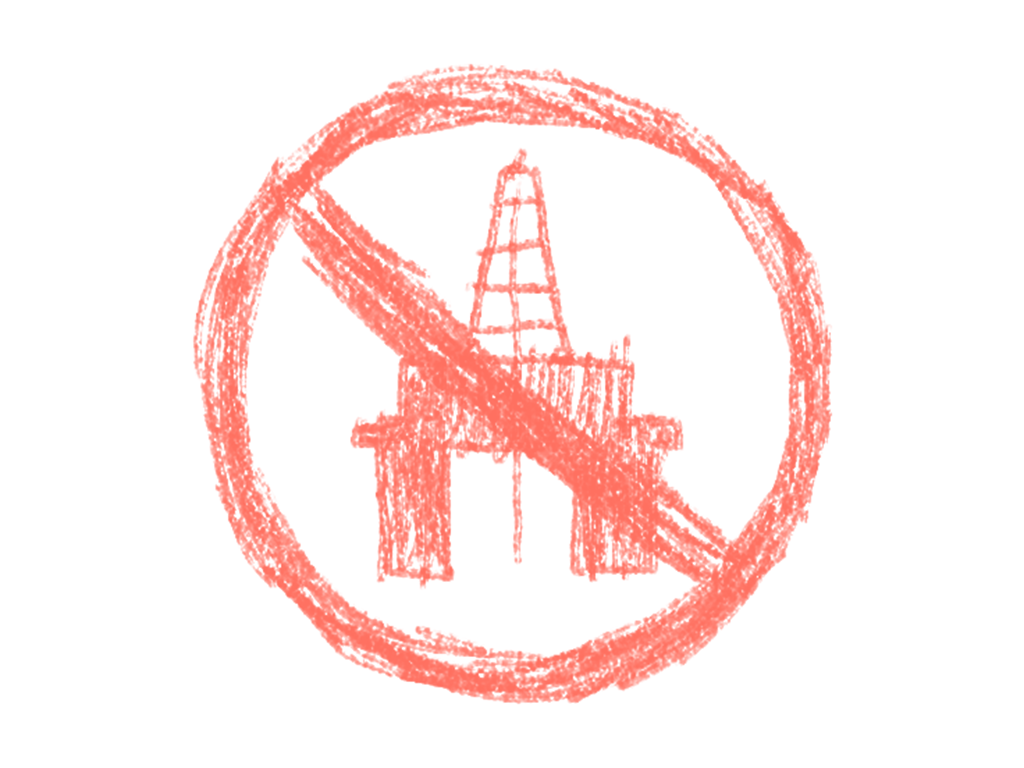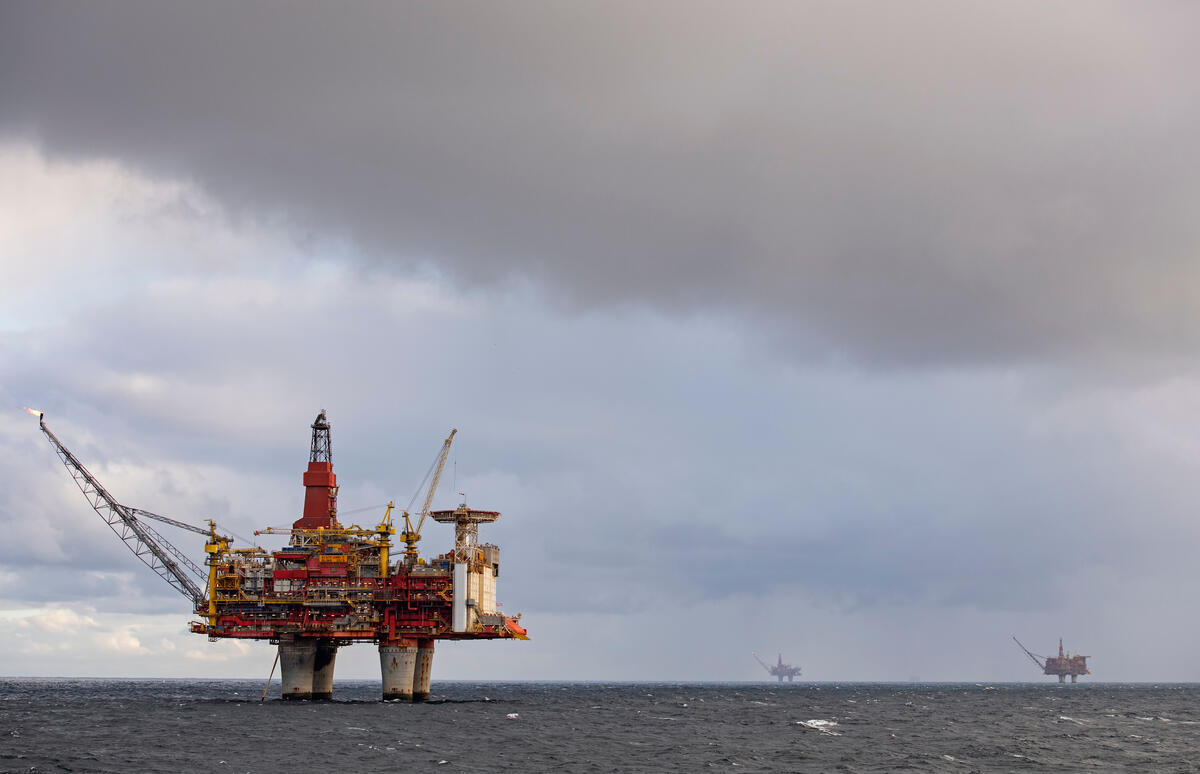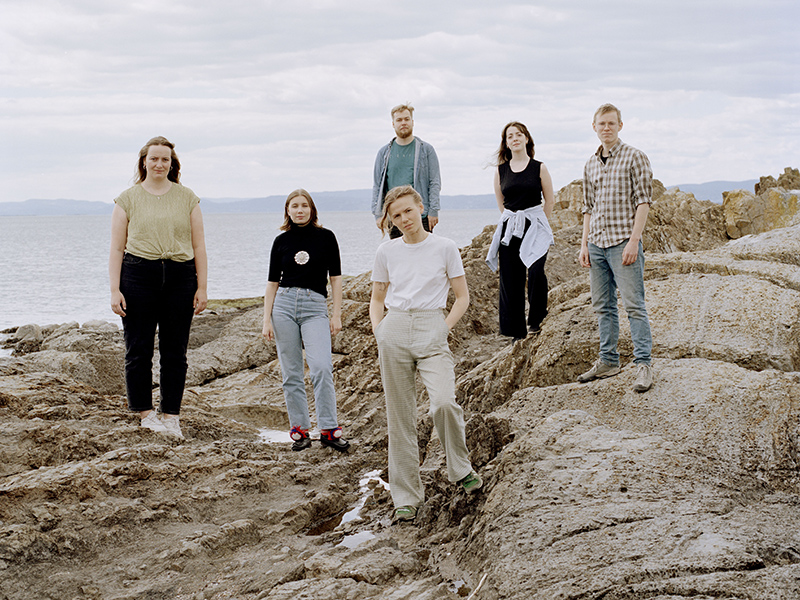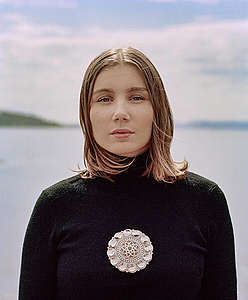
Ella Marie Hætta Isaksen
Bio
Ella Marie Hætta Isaksen is 23 years old and from the municipality of Tana, in Finnmark county in the far north of Norway. She identifies as a Norwegian and Sami artist and environmentalist. She has been part of the national board and the central executive committee of Young Friends of the Earth, as well as having been employed in the organization, with responsibility for policy- and organizational work in the two northernmost counties in the organization. As an artist, she has used her platform to spread awareness and information, and showing resistance to the expansion of the Norwegian oil industry, development projects encroaching on Sami territory and pollution. She has actively been part of and supported the case (People vs. Arctic Oil) filed against the Norwegian state for the issuing of 10 licenses in the Norwegian Barents Sea and she has since 2019 held the position of Oceans ambassador for Greenpeace.
Involvement in the People vs. Arctic Oil climate lawsuit
In 2015, Ella Marie was chair of the county board of Finnmark, and part of the national board of Young Friends of the Earth Norway During 2015, there were several discussions about filing a lawsuit against the Norwegian state due to its expansive oil and gas policies. In 2017, when the case went before Oslo District Court, she was employed by Young Friends of the Earth, with particular responsibility for the activity in the two northernmost counties – Troms and Finnmark. In this position, she worked in particular with the issue of oil and gas expansion in the Barents Sea. She was present in the courtroom when the case was heard in November 2017, and had a particular responsibility for disseminating information to local chapters of the organization in the northernmost counties about the proceedings. After the first judgement, she was part of the process where Young Friends of the Earth asked for a direct appeal of the case to the Norwegian Supreme Court in the spring of 2018. Ella Marie stepped down from her elected position in the organization the summer of 2018, but has since followed the case from outside of the organization.
Statement
I am, like other young people, fearful and afraid due to the prospect of climate change. I spend a considerable amount of time and personal resources on being worried, but also on trying to keep my hope up. In this way, climate change is affecting me personally: I am morally required to be an activist, in solidarity with those who live in areas exposed to extreme weather events, but also with Earth itself. I feel a huge sorrow for the loss of the diversity of nature and of its eco-systems. In particular, I feel it inside when the areas I know well and have grown up in are altered by climate change. The forests around my childhood home and elsewhere in the north of Norway, are dying, as the shorter and milder winters allow leaf-eating larvae to sustain in places where they previously would not. The forest is home and habitat to an abundance of wildlife. And this eco-system, which we as humans are directly depending on, is endangered.
In the river Tana, which has been the literal source of life and sustenance for the people of my municipality since time immemorial, is now closed for salmon fishing. As long as I can remember, my family and I have fished in this river, but due to the effects of climate change on the Barents Sea, the conditions for the salmon have deteriorated. And for this reason, my family and I have to refrain from using the river, in order to spare the salmon. But in doing so, we lose an important source of sustenance. Still, the most painful part is that the traditions tied to the fisheries cannot be continued as previously. Climate change introduces further damage to an area which is already under pressure. Land development has over several decades encroached on and restricted the use of the lands historically used for Sami reindeer herding and traditional sustenance activities. Many are feeling that they have to end their traditional way of life, as it is no longer possible to make a livelihood from the land and its natural resources.
I am filing a complaint to the European Court of Human Rights because the judgement from the Norwegian Supreme Court is flawed, as it does not take into account in its assessment the consequences of climate change for the coming generations. It is illogical that a constitutional right to a healthy environment should not guarantee a real protection for those who will be affected by climate change. This is particularly precarious when we know the risks a changing climate presents to both future generations, and those who are young today. Some of these consequences are already present, and are particularly apparent for those who have their livelihoods close to and connected to nature. But we know that there will be even more serious consequences for life and health later, if we do not take sufficient actions to curb greenhouse gas emissions today. With this in mind, it is unconscionable that the total emissions, including the emissions from the combustion of the oil and gas for which the licenses were issued, were not even assessed. If we as a society are going to be able to halt this climate crisis, getting to know the full consequences of our actions when we enact new polluting projects, should be a bare minimum.
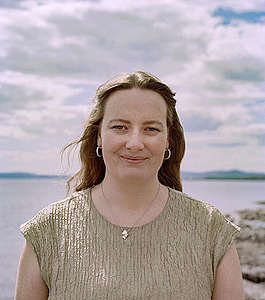
Ingrid Skjoldvær
Bio
Ingrid Skjoldvær is 28 years old. Her involvement in the environmental movement started in 2006 when she became a member of Young Friends of the Earth Norway. In 2013 she was elected to the central executive committee of the organisation, where she worked on spreading awareness about the effects of climate change and advocating for decision-makers to take climate action. Advocacy work against new oil licenses, in particular in the Arctic, has been a central part of this. She has followed and tried to influence the process leading up to the issuing of new licences in the 23rd licencing round both politically and legally from the beginning. Between 2016 to 2018 she was chair of Young Friends of the Earth Norway and took part in the decision-making process that led the organisation to initially file the lawsuit in 2016. As chair of the organisation, she represented the 7500 members at the hearing before Oslo District Court in 2017. The statement she made before the court is attached and further explains the background for why they decided to file the lawsuit.
Statement
I’m filing this complaint with the European Court of Human Rights because I believe that Norway’s decision to expand oil drilling in the Barents Sea in the Norwegian Arctic constitutes a threat to the human rights to life and well-being being granted to me in article 2 and 8 in the European Convention on Human Rights.
More than fifteen years has gone by since I started my involvement in the environmental movement in 2006. Back then, climate change was still seen as a future threat, a threat that it would be possible to stop. Today, it’s no longer a question of whether or not we can stop climate change, but about how much we can limit its destructive consequences. Climate science tells us that if we are to prevent the most severe consequences of climate change, global temperature rise must be limited to 1.5 degrees. To achieve this, fossil fuel emissions must be cut drastically. At the same time, Norway issues new oil licences that will lead to large emissions for decades to come. This decision exposes my life, and the lives and well-being of other young people to a great and unacceptable risk, undermining the efforts to keep global temperature rise below 1.5 degrees.
Furthermore, the assessments of what implications the new oil development in the Arctic will have has been inadequate. When Norway initially decided to open for petroleum development in the South-Eastern Barents Sea as such, the environmental assessments lacked information about the climate and environmental consequences of new oil development. Further, for the 23rd licencing round in particular, Norwegian authorities failed to assess what effect these new licenses would and will have on the overall emissions. These deficient assessments paint a picture where each new oil license seems insignificant. By not viewing this area and the licenses in the 23rd round in light of Norwegian and international climate policy as a whole, Norway is fragmenting, and hence ignoring its obligations to safeguard the human rights of its citizens against the threat of climate change. Not disclosing and assessing this information also impaired the public debate around the climate effects of Norwegian fossil fuels production. The government thus effectively removed our possibility to partake in and impact the democratic discussion on this subject. More specifically, we lost the possibility to discuss and raise awareness in the public sphere of the potential effects of the licensing decision, based on all available facts. This is true for Natur og Ungdom, for me, and for the other activists who worked with halting the 23rd licensing round.
Norway is already seeing the effects of climate change with melting glaciers, an increase in avalanches, loss of biodiversity, extreme weather and heat waves leading to drought and failing crops. This will inevitably impact the younger and future generations.
I come from a small community in Northern Norway above the Arctic Circle. In the Arctic, the consequences of climate change are predicted to be severe, and some consequences are already affecting local communities. Due to warming oceans, the stocks of cod we have depended on for thousands of years are moving further north, forcing fisheries with them. The reindeer herders of the indigenous Sámi people are struggling to find grazing land for their reindeer, due to uneven winters and changing climate conditions, putting their culture and livelihood at risk.
Climate change makes the future uncertain and insecure. I worry a lot about what the future looks like. I was a child when I became aware of the threat of climate change. Now I’m an adult and my partner and I are at an age where we are starting to think about having children. I worry about how my future children’s lives will be affected by climate change.
The effects of climate change will keep getting worse if greenhouse gas emissions aren’t reduced drastically. Knowing this, Norway should take all reasonable measures to reduce our greenhouse gas emissions. By granting new licences in the 23rd licencing round the Norwegian government is not only failing to protect my human rights to life and well-being from the threats of climate change, they are actively violating my human rights by acting contrary to climate science and facilitating further climate gas emissions well into my future.
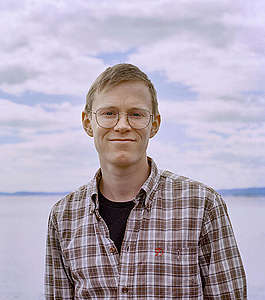
Gaute Eiterjord
Bio
Gaute Eiterjord is 26 years old and has been involved in the court case against the 23rd licensing round, and decision to allow for oil and gas exploration in the Barents Sea for several years. In 2010 he became a member of Young Friends of the Earth Norway, and from January 2014 to January 2020 he was a member of the central executive committee of the organization. He took part in the work against the 23rd licensing round, and in the decision-making leading up to the filing of the lawsuit in October 2016. From 2018 to 2020 he acted as chair of the organization, representing its members in the legal proceedings in Borgarting Court of Appeals in November 2019. His statement made in front of the Court of Appeals describes their process and reasoning behind filing a lawsuit in more detail, and is attached.
Statement
The reason I am filing a complaint to the European Court of Human Rights (ECHR) is the decision by Norwegian politicians to allow for oil drilling in vulnerable areas in the Barents Sea. This is a violation of the European Convention on Human Rights, granting me the right to be protected against decisions endangering my life and well-being. The decision threatens some of our most vulnerable seas with regards to biodiversity and fisheries. Oil and gas exploitation in the area will contribute to large amounts of greenhouse gas emissions. Such exploitation will make it more difficult to solve the severe climate crisis we find ourselves in.
Scientists have for several decades expressed concerns that anthropogenic greenhouse gas emissions are altering the climate on Earth, wreaking havoc on nature and society. We see these effects today, with species unable to adapt to new temperatures and weather patterns, and communities in every part of the world facing stronger extreme weather events in one way or the other. One such example is the drought experienced in Europe during the summer of 2018, creating huge difficulties for farmers in Norway, and increasing the frequency of wildfires.
The ongoing climate crisis threatens to make my life and the life of other young people in Norway increasingly more difficult, ultimately leaving us to face challenges no generation has ever faced before. These changes will put a heavy tax on our ability to produce food, tackle extreme weather events like heavy precipitation and dangerous events such as floods and landslides. Increased sea levels will affect towns along the coast, with the increased risk of strong storm floods causing large damages.
In Norway, an important consequence of the temperature increase is a decrease in food stability with more extreme weather events and unpredictable weather patterns. Norway’s degree of food self-sufficiency is low, and we depend upon the world markets for importing both food and animal feed. Following the summer of 2018, imports increased substantially as farmers struggled with the effects the drought had on harvests. If the global temperature increase continues unchecked, food instability will undoubtedly become an even larger problem. This will impact my future, my potential children’s future, and the lives of future generations.
Furthermore, the international situation affects us. With the current level of global warming, we are headed for a planet where conflicts will arise over natural resources, and large areas will turn unsuitable for agriculture uses and to sustain human life as such. The climate crisis will reduce biodiversity. We all rely on the diverse eco-systems on for eco-system services such as climate regulation, adaptation to extreme weather, food production, medicinal ingredients, pest control, and so on. The weakening of these eco-system services as a result of the climate crisis affects the well-being of me and other young Norwegians.
The Norwegian society where I am growing up and will be living in for the rest of my life must already expect to spend a lot of our resources adapting to climate change that cannot be stopped. If we fail to reduce emissions in accordance with the recommendations from the Intergovernmental Panel on Climate Change (IPCC), we are in even deeper trouble. The Norwegian government should be doing everything in their power to protect us from such terrifying scenarios for the future. What they should, on the other hand, not be doing, is to allow for an expansion of fossil fuel production. That is why I am filing this complaint with the European Court of Human Rights.
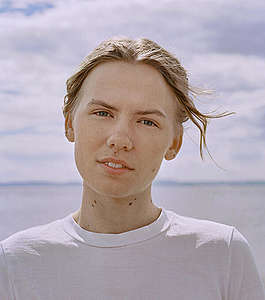
Gina Gylver
Bio
Gina Gylver is 20 years old. She became a member of Young Friends of the Earth Norway in January 2014 and have since been active in the organization as local chapter leader, county board member and chair, member of the national board, member of the appointed committee on international issues, member of the nominating committee for central elections and as a member of the central executive committee, the latter of which is the position she currently hold in the organization.
Involvement in the People vs. Arctic Oil climate lawsuit
In 2016, Gina was part of the county board for the Oslo region, and attended the annual Young Friends of the Earth Norway summer camp. At this summer camp she participated in the extraordinary national board meeting where it was decided to file a lawsuit against the Norwegian state for having issued 10 licenses in the Norwegian Arctic through the 23rd licensing round.
During the hearing in Oslo District Court, in November 2017, she was chair of the county board in Oslo, and followed the case closely. She applied and received permission from her school to attend the hearings in court, and wrote summaries, worked with social media updates, gave lectures, communicated with local chapters and hosted daily updates on behalf of the organizations, summarizing the days in court, every evening at a local venue. These updates were also streamed online. During the hearing in the Borgarting Court of Appeals, she was engaged in social media updates on the case. When the case was heard by the Norwegian Supreme Court, she had become a member of the central executive committee, and followed the case closely. Among other things, she made daily illustrations summarizing the day in court. These illustrations were used by the organizations on different platforms, such as social media.
Statement
As a young person, it’s difficult to predict how climate change will affect my life in the future. Still, some consequences are already crystal clear to me. As the climate crisis is an all-encompassing and existential threat, I envision using the rest of my life as part of the struggle for a livable planet. This threat will command which education I will pursue, my choice of what to work with and many other choices about my future. In particular I see no other choice than to work either in an environmental organization or with political and environmental art in order to sway the public opinion. In this way, climate change is already affecting my choices in life. I feel a strong moral obligation as a privileged Norwegian citizen to make the right choices. My freedom of choice is encroached upon by, and disappears due to, the gravity and haste the climate crisis necessitates. I feel morally required to refrain from air travel, owning a car, having a large consumption or doing anything which does not contribute to stopping the climate crisis. I feel required not to remain neutral – to live a life which does not contribute positively in this regard seems morally impossible.
As a young person I am asked to accept that the future is uncertain and that much of what I have taken for granted thus far in my life, and which my parents have taken for granted in their lives, can no longer be seen as given. The increased frequency with which extreme weather events will take place will threaten lives also in Norway. Extreme weather-related events will become more frequent, and climate change will take lives. It is a hopeless task to try and predict how this will affect the Norwegian economy or welfare, but we will all need to adapt our lives, and it will restrict the amount of goods we may permit ourselves to consume. Adaptation to climate change, and restoration of damages caused by climate change will amount to large costs, which will need to be paid by my generation, if current trends continue.
The consequences of climate change for countries in the rest of the world will also affect Norwegian society. The increase in temperature will affect food security. In 2018, Europe was hit by a drought and heat wave. This led to an increase in the Norwegian import animal feed to a record high of 70 % of total feed use. Neither I, nor future generations, will have any benefit of the relative prosperity of a country such as Norway, if there is no food to be bought on the world market, food on which we rely for survival. This worries me.
I feel climate sorrow. A sorrow over everything that will be gone. Over all the nature that I will never be able to see, which my children will never experience. Just the thought that it will be destroyed, even if I would never have seen it with my own eyes. Arctic landscapes, coral reefs and all the natural habitats which will disappear because of climate change. All the species and eco-systems which are on the road to perishing. Sorrow on behalf of the millions of children and grown-ups who die or are forced to move due to droughts, wildfires, struggle for resources and natural disasters. And all the brutality and injustice which underlie these consequences. I think about all of those who in the future will perish due to climate change. My involvement in Young Friends of the Earth Norway helps me make use of this sorrow through action. I don’t know how my situation would have been if I had not been able to do so.
I am deeply disappointed that the Norwegian Supreme Court does decide with regards to the significance of the climate crisis for future generations, as I have presented above, and the fact that the consequences of the current climate crisis will devastate future generations, if we do not take action and restrict harmful behaviour today. This is an ignorant approach. The judgement absolves today’s politicians and the government from their responsibility to act, while the citizens do not have their basic rights secured.
This is the reason why I seek to file this complaint to the European Court of Human Rights.
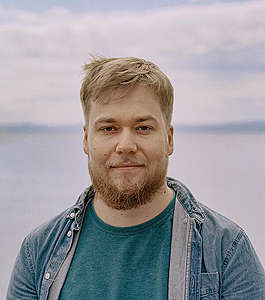
Lasse Eriksen Bjørn
Bio
Lasse Eriksen Bjørn is 24 years old and has been a member of the central board and an employee of Young Friends of the Earth Norway. He is still an active member in the Student chapter in Oslo. He became a member of the organization in 2014 and was an active member of a local chapter when the organization decided to sue the state. As an employee in 2017 he traveled across the country to speak about the climate lawsuit at schools and events, and during the first two court cases he worked with the organization of side events. He was a central executive committee member when they decided to appeal the case to the supreme court.
Statement
I have worked to promote sustainable fisheries and agriculture (and other primary industries) in Norway during my whole time as an active member of Young Friends of the Earth Norway, because I know that climate change will threaten food production globally and in Norway This has been my way of tackling the overarching threat of climate change, by breaking it into smaller parts and try to make a difference.
I am deeply worried because we already see the effects of climate change in Norway and specifically in the region where I am from. In the winter of 2020 there was a crisis in the reindeer husbandry industry in my region, as higher temperatures caused “rain on snow” events. Warmer weather caused precipitation to come down as rain, freezing overnight, making it impossible for the reindeer to access the lichen on which they depend for food. Tromsø, my hometown, has seen larger thunderstorms. A weather type that my grandmother says never happened before. These are all examples of the climate changing in the region. As we all know the climate is changing faster in the Arctic. The severity of these consequences in the future is uncertain. What we do know is that the consequences will be far more severe if the government does not take action.
As a young person from the Sea Sámi culture, I fear the impact that climate change will have on my people’s way of life. Historically, the Norwegian government has led a repressive policy towards the Sea Sámi society, but in the last years, we have seen a resurgence of this culture. The Sámi culture is closely related to the use of nature, and fisheries are essential. For our culture to continue without the traditional harvesting of the oceans would be impossible. A threat to our oceans is a threat to our people.
The areas where the Norwegian government has issued licenses for further oil and gas expansion through the 23rd licensing round are immensely important for the fish stocks outside the coast of northern Norway. The consequences of these fish stocks losing their habitat due to oil spills or similar events are large. These licenses will also cause further emissions of greenhouse gas, driving further climate change. Climate change already leads invasive alien species to migrate to the fjords along the coast of my region. How will we be able to continue the practice of our culture, living on the basis of traditional knowledge of nature, if the species that our culture has nurtured for centuries disappear? I fear that the next generation will never learn how to live off the fjord, as I learnt from my grandparents while growing up.
All of the reasons mentioned above are why I am complaining to the European Court of Human Rights. The Norwegian government, and now also the Supreme Court do not take into consideration our rights to life, well-being, and respect for family and private life under the Convention, or the rights of future generations.
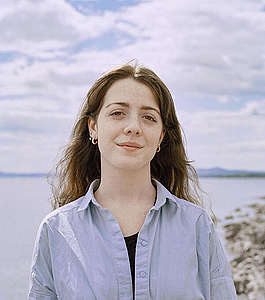
Mia Chamberlain
Bio
Mia Cathryn Haugen Chamberlain is 23 years old and has been a member of Young Friends of the Earth Norway since 2014. Here she sat for two years on the central executive committee, working in particular with advocacy related to Norwegian oil and gas policy, and where she also has been employed in an organizational position, following up local chapters organization and holding public presentations on climate and environmental issues. She is currently studying psychology at the University of Oslo, and she is a chair of the local student chapter of the organization at the university. In 2016, when Young Friends of the Earth Norway decided to file the People vs. Arctic Oil lawsuit against the Norwegian state for issuing licences in the Norwegian Arctic, she was a member of the local chapter in Bergen, attended upper secondary school and was active in the organization and in environmental issues through participating in public manifestations, organizing and activism through Natur og Ungdom. She has also been active in politics, with the same goal: To spend all of her time in order to stop climate change.
Involvement in the People vs. Arctic Oil climate lawsuit
When the People vs. Arctic Oil lawsuit was before the Oslo District Court, Mia was employed in Young Friends of the Earth Norway as regional coordinator, working, among other things, with mobilizing local manifestations and activity related to the lawsuit, and holding public presentations regarding the case at schools. When the case was heard, she was present in the courtroom several of the days. When the People vs. Arctic Oil lawsuit was before the Borgarting Court of Appeals, and before the Norwegian Supreme Court, she worked directly with organizing and communicating about the case to the organization, and through social media, as part of her position on the central executive committee. As part of her responsibilities, for a large portion of this period, she led the organization’s work against Norway’s expansive oil policies, having overall responsibility for activities, which included manifestations, media work and public presentations. In this period, the lawsuit was the all-encompassing work Young Friends of the Earth Norway did in this policy area, and in these two years of her life, this was what she dedicated herself to.
Statement
Climate change is depriving me of my belief in the future, my optimism, and I have had several bouts of “climate anxiety”, an all-encompassing fear of the state of the future, of those who are directly impacted by climate change in the form of hunger and droughts, but also of a world without optimism or hope whatsoever. Optimism and hope is all we have, but this is what I am losing. In periods, thoughts of this have brought me down severely, and in periods I have experienced depressive thoughts, leading to a number of days where I was not able to attend school. When at school, I had to leave the classroom when topics related to climate change were lectured, because I couldn’t bear it. For a long time, I avoided reading news, for the same reason. The worst period was when I was around 15 years old. This was when I became a member of Young Friends of the Earth Norway. Participating in an organization such as Young Friends of the Earth Norway has helped, as one is doing something. At the same time, it feels like you always have to accept a never-ending series of losses. When you work with climate advocacy, you get used to losing. But I never really got used to it, to the absolute denial of responsibility, and paralysis with regards to sufficient action, of those with power, of those generations of “grown-ups”, those who originally put us in this situation. We are forced to live in a world where we don’t know how long anything of value will last. For this reason, climate anxiety makes me angry. Without this anger, it would have been paralysis. The People vs. Arctic Oil lawsuit has to me been the opposite of paralysis. It has represented hope among uncountable losses. In short: Climate change is affecting me psychologically, and will likely continue to do so always. Because, ignoring it is impossible.
In my opinion, the Norwegian Supreme Court made a political assessment when they interpreted the Norwegian Constitution as they did, which in my opinion is in the most limiting way possible. By not taking into account the consequences on future generation of climate change, and doing so by arguing that the elected parliament provides sufficient review, even when they don’t, the Supreme Court is effectively narrowing down its understanding of democracy to only include those with the right to vote. Those people who will have to bear the largest consequences of climate change don’t yet have the right to vote.
The judgement from the Supreme Court states that the emissions from the 23rd licencing round are not substantial enough to infringe on my rights and the rights of future generations. With this as a premise, no single decision or source of emission will ever be large enough. The emissions resulting from the oil and gas Norway sells to other countries, from which Norway makes a fortune, is the largest, and most important source of emissions that we need to remove. Norway does not take responsibility for its role in the climate crisis. And Norway’s role is very large, compared to the number of people who live here, and who benefit from these circumstances. Norwegian oil and gas is the source of 500 million tons of annual exported emissions, emissions which are in addition to those accounted for by national emissions inventories. This are the reasons why I am filing a complaint to the European Court of Human Rights
Young Friends of the Earth Norway (Natur og Ungdom)
is the largest environmental youth organisation in Norway. The organisation represents more than 9,000 individual members and 60 local groups across the country. It is well-respected in Norway, where it is the youth branch of the Norwegian chapter of Friends of the Earth (Naturvernforbundet).
Greenpeace
is a global leader in the fight for climate justice present in 55 countries across the world. It is an independent global network that acts to change attitudes and behaviours, protect and conserve the environment and promote peace. Greenpeace does not accept money from governments, political parties or corporations. It is the independent regional office Greenpeace Nordic which is co-plaintiff in this case.

